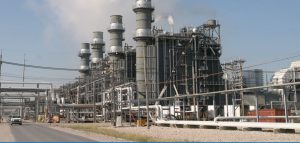Preservation of boilers
After pre-commissioning or post-commissioning cleaning of a boiler it can occur that due to circumstances, there is a significant time between the completion of the chemical cleaning and the commissioning of the installation (often with pre-commissioning) or with older boiler installations to check all ancillary installations for wear and tear (mostly post-commissioning).
Prevent corrosion
In these cases, attention must be paid to the appropriate preservation of the boiler to prevent corrosion problems on the internal parts of the boilers. Vecom defines preservation as introducing a medium in the boiler with a high pH (pH 10 - 10.5).
Shorter or longer
Depending on the duration of the preservation and in consultation with the customer, two possible procedures can be chosen:
- Preservation shorter than 3 months
- Preservation longer than 3 months
Preservation shorter than 3 months
If the boiler is at a standstill for a short period (<3 months), a preservation is often applied by filling the boiler with demineralised water to which ammonia is added.
Preservation longer than 3 months
If the boiler is at a standstill for a longer period (> 3 months), a preservation is usually applied by filling the boiler with demineralised water to which trisodium phosphate is added.
This will create an iron phosphate layer that forms a protective layer on the base material. An oxygen binder is added to protect this layer against the influences of oxygen.
Excess pressure and checks
During filling it is essential that all oxygen is removed from the systems. Due to the construction of the boiler it is not always possible to do this. There is also the possibility that oxygen penetrates the pipes through a partial vacuum in the boiler (for example due to leaking gaskets). To prevent the penetration of oxygen and at the same time expel the last remaining amounts of oxygen from the boiler, the boiler is placed under a slight nitrogen excess pressure.
The pH value and overpressure must be checked several times a week at different points in the boiler. This check is necessary to detect early deterioration of the preservation. A sudden increase in nitrogen consumption may indicate a leak or loss of water from the boiler. If preservation water is nevertheless lost, due to leaks or unintentional (partial) emptying of the boiler, it is necessary to top up the preservation liquid as soon as possible and to place it again under excess pressure of nitrogen.
